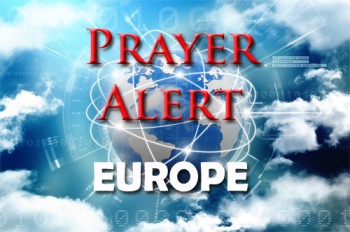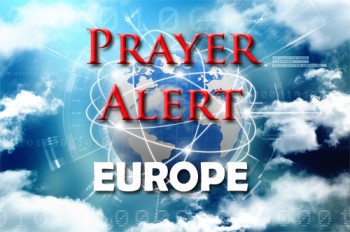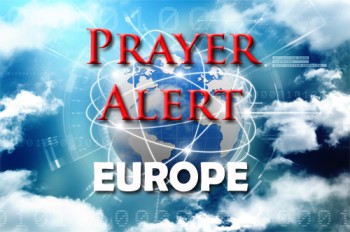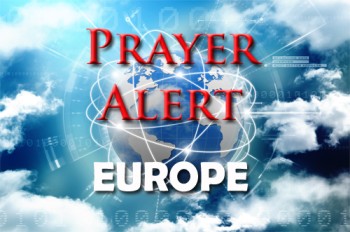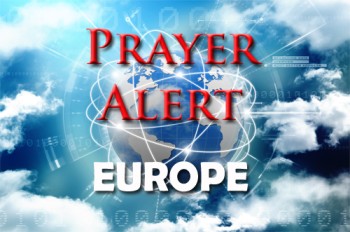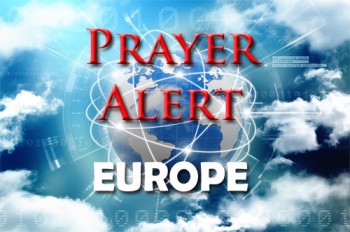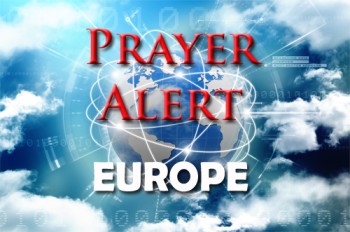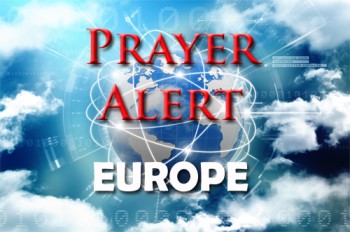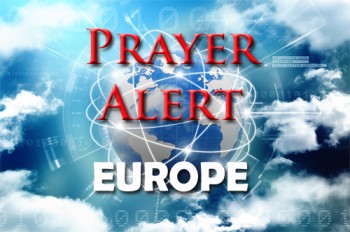Displaying items by tag: Europe
Ukraine: Female front line fighters
Ukrainian women are signing up in growing numbers to defend their country. There are 60,000 females fighting Russia - amidst strong Ukrainian sexist attitudes. 42,000+ have military positions with 5,000 on the front line. Andriana is a Ukrainian special unit sergeant preparing to return to the front line. Many Russian texts and videos report Andriana’s ‘death’ in graphic detail. ‘They published that I died with no legs or hands.’ says Andriana. ‘They are propaganda professionals.’ Female troops also face battles of sexist attitudes within their own ranks. Ukrainian society has a strong opinion that girls join the army to find a husband. Andriana says women have also told her about cases of physical abuse. We can't imagine the scale as few female soldiers will discuss this, so Andriana co-founded Ukrainian Women Veterans Movement, which campaigns for equal rights for female military personnel, and for reforming Ukrainian army legislation to bring it in line with NATO's.
Russia: warnings and dangers
After Ukraine’s recent drone attacks, there have been warnings of tough retaliatory measures. Putin’s closest ally Dmitry Medvedev, of Russia's Security Council, said Moscow must ‘choose unconventional targets for our strikes - not just storage facilities, energy hubs and oil bases.’ He also warned of a global conflict breaking out as nuclear tensions rise and concerns about climate change intensify: ‘The world is sick, and quite probably on the verge of a new world war.’ Officials in Moscow have repeatedly warned that the world faces the most dangerous decade since World War 2. At NATO’s arms control conference recently, the USA said, ‘We have watched and worried that Putin would use his non-strategic tactical nuclear weapon for a managed risk escalation. It’s critical that we remain watchful.’ NATO’s secretary general said Putin’s plan to place tactical nuclear weapons in Belarus was part of a years-long pattern of ‘dangerous, irresponsible nuclear rhetoric’ which intensified with the ‘brutalisation of Ukraine’. See
Europe: heatwave relief in sight
European countries suffering under sizzling heat waves for weeks can hope for respite as ‘subtle changes in the jet stream’ are expected to start to bring temperatures down by 2 August. Until then we can continue to pray for the safety of firefighters who are running towards the flames as others are running away. Ask God to comfort those whose homes and businesses have been destroyed. Pray for help and wisdom for those who have to rebuild their livelihoods after the fires are extinguished. May God be with people mourning those killed by fire, and may He help those who continue struggling with health issues worsened by heat and smoke.
Russia: facts for informed intercession
We can pray into Putin’s situation as he tries to crack down on the increasing resistance by his ex-supporters, the nationalists. Their abandoning him falls in line with the growing war-weariness across Russia. Russian ultranationalist Igor Girkin was arrested after he criticised Vladimir Putin’s handling of the Ukraine war, calling for a transfer of power. He said online that the Russian army is no longer loyal to Putin; he expects the Ukrainian counteroffensive to break the Russian front. He also promised to form an opposition party of ‘angry patriots’ to save Russia from collapse. There are other nationalists and dissenters also criticising Putin’s handling of the war. Putin still depends on Wagner’s generals, which means a weakened Russian military and more mistrust. China supported Putin’s invasion of Ukraine. Western sanctions gave Putin economic tensions. Now selling the Chinese yuan indicates his dependence on Beijing.
Putin ‘clearly under pressure’, says UK spy chief
The head of Britain’s MI6 foreign spy service, Richard Moore, has said that Putin is clearly under pressure in the wake of the Wagner mutiny attempt in June. In his second speech since becoming MI6 chief in 2020, Richard Moore also appealed to Russians appalled by the war in Ukraine to ‘join hands’ with his intelligence service and bring the bloodshed to an end. He said there appeared little prospect of Moscow regaining momentum in Ukraine, adding that he was optimistic about Kyiv’s counter offensive. This follows Russia evacuating thousands of people in the Crimean peninsula after a military training base fire in the Kirovske district. Meanwhile, Ukraine’s port city of Odessa sustained massive Russian airstrikes the day after Putin pulled out of a deal allowing safe grain exports from the region. The Odessa military administration said the attack was very powerful.
Sweden: religious intolerance
Swedish police approved of burning a Bible outside Stockholm’s Israeli embassy. The decision follows similar Quran burnings which sparked outrage in the Islamic world. The demonstration was scheduled for Shabbat, when Israel's embassy is closed. A recent Swedish poll found most citizens support banning public burning of religious texts. Israel’s chief rabbi asked King Gustaf to utilise his influence so that the Bible burning does not take place, sending the message that Sweden stands against religious intolerance. Meanwhile on 20 July another Quran was desecrated in Sweden; the Iraqi government informed the Swedish government through diplomatic channels that any recurrence of burning of the Holy Quran on Swedish soil would necessitate severing diplomatic relations. See also world article 6, and
God moving in Norway
Over several years, ten to fifteen believers gathered to pray once a month in a village prayer house in Norway. In February, a singing evangelist was invited to lead some meetings. He immediately sensed unity and a divine presence. Before long, hundreds were attending, necessitating a move to a larger venue; now over a thousand meet in a sports arena. Whole families are renewed in Christ. People aged 14 to 70 are giving their lives to Him. People are saved, healed and baptised in the Holy Spirit. Is this Scandinavia's equivalent of the Asbury University revival? Or is God doing something completely new?
France: money-laundering in real estate
New in-depth analysis found unacceptable levels of money laundering risks in French real estate, despite transparency measures. Non-compliance, incomplete data, and loopholes are creating a brick wall for attempts to follow flows of dirty money into real estate. Six years after France began collecting information on the beneficial owners of companies, almost a third of legal entities have failed to comply. Consequently over 7.33 million parcels of land, which could contain one or multiple properties, are anonymously held. There is a dead end for efforts to follow the money of white-collar criminals, kleptocrats and sanctioned elites into French real estate, which is known to be a favoured destination for corrupt cash. Over 1.5 million registered entities have not yet declared who ultimately owns and benefits from them.
Ukraine: humanitarian response
The war in Ukraine has further escalated in 2023, with hostilities ravaging communities in the east and south and taking a heavy toll on civilians living close to the front line. Mine contamination is also creating tremendous challenges for civilians trying to get back to their farms, and for humanitarians striving to deliver assistance. Despite tremendous challenges, humanitarian organisations in Ukraine continue to reach more people every month. By the end of April, 5.4 million had received aid. This was possible thanks to the efforts of hundreds of aid organisations, local groups and volunteers who play a vital role in getting assistance for those who need it the most. Insecurity and access challenges continue, however, to hamper assistance in areas under Russian military control. Funding also remains low, adding to the challenges. Although strikes on energy infrastructure that had driven urgent humanitarian needs during the winter months have decreased, homes, schools, water systems and hospitals continue to be damaged.
Ukraine: fight for their lives
Ukraine's counter-offensive is currently slow and cautious. But this patient approach should soon pay off as long-range strikes prevent Russia rearming frontline units, and low Russian morale provides opportunities for strategic breakthroughs by Ukrainian forces. There are vast stretches of minefields lying ahead of Ukraine's counter-attack. ‘Petals’ - small, green, anti-personnel mines - are being scattered by Russian rockets across fields previously liberated and cleared by Ukraine forces. President Zelensky admitted Ukraine’s counterattack was ‘slower than desired’, partly due to minefields slowing down troop movement. The enemy has no mercy for their own soldiers. They are used as cannon fodder. But Ukraine is trying to move forwards with the minimum of casualties. One soldier said, ‘We are learning to improvise and to invent ways to make quick, safe paths through the minefields. But we are fighting a very vicious enemy.’
